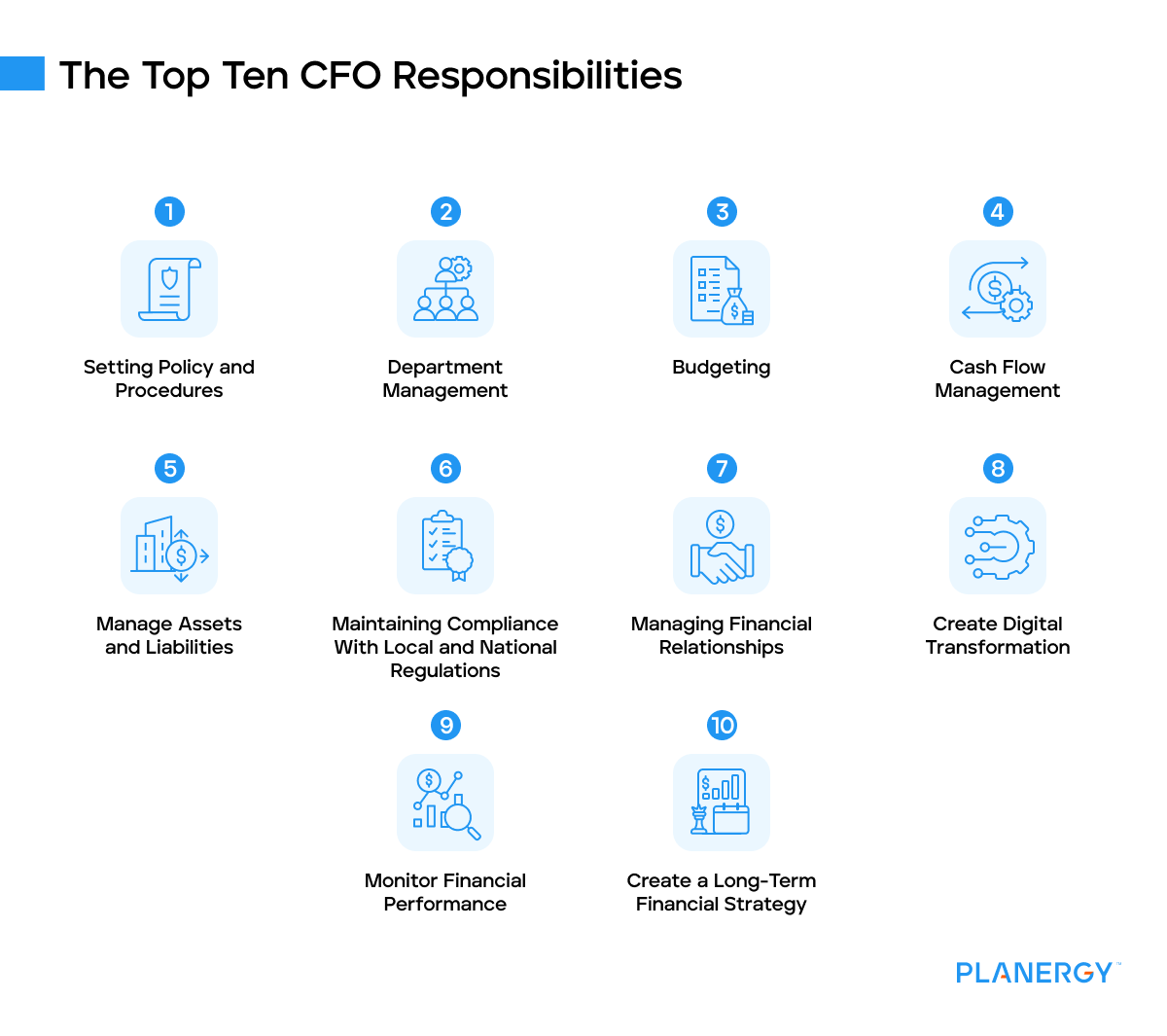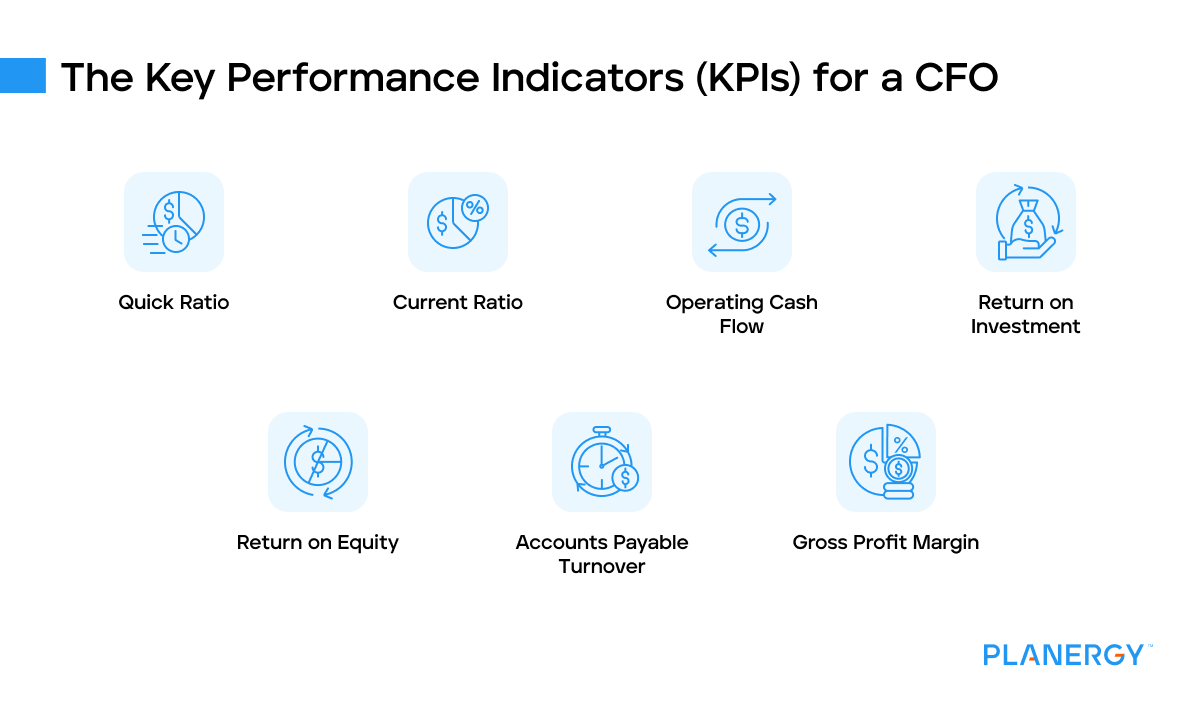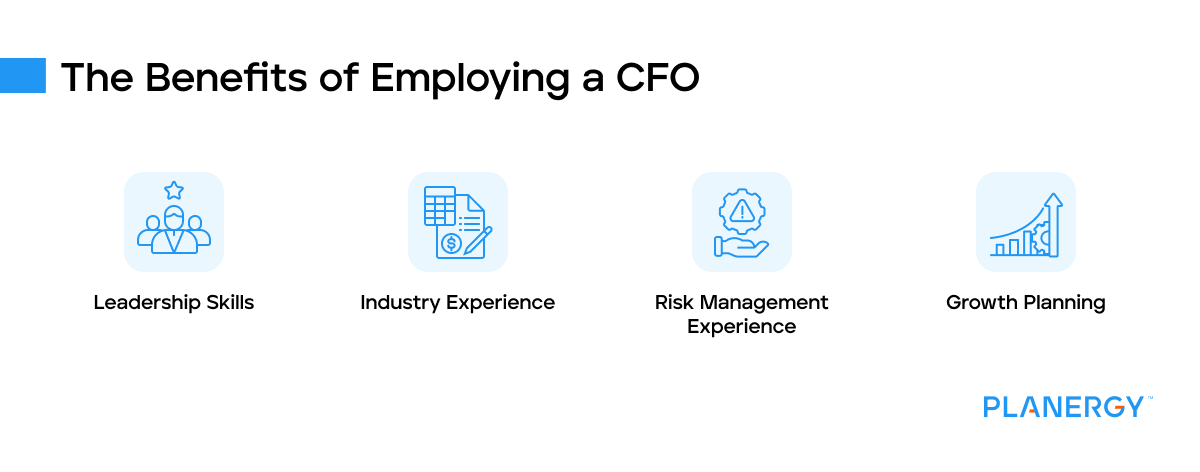Though CFO responsibilities remain primarily financial, they have expanded to include emerging technology such as data analytics, artificial intelligence, and machine learning, and how they can benefit an organization.
Setting Policy and Procedures
Setting policies and procedures around financial operations is one of the key responsibilities of a CFO.
This includes implementing best practices for the accounting department and developing a method to ensure that the established practices are being adhered to regularly.
Department Management
Depending on the size of the organization, a CFO may directly supervise the accounting staff, while in larger organizations, there is typically a controller or department manager who directly supervises the accounting staff and the company’s finance team.
CFOs also play a role in managing IT and any related software applications, and will also monitor human resources related tasks such as payroll and payroll tax payments.
In any case, the CFO is directly responsible for staffing, even if indirectly, and sets the direction of the department.
Budgeting
A CFO plays a key role in budget development and financial forecasting, setting goals, and tracking company performance while making any adjustments as needed.
Accurate budgeting is also an important part of a CFO’s job.
Together with the CEO, the CFO reviews financial data and uses various forecasting methods to make key decisions about the company’s future.
Cash Flow Management
A junior accountant is usually responsible for daily cash management, but it’s the job of the CFO to drill down into the details.
For example, while an accounting clerk can run a cash flow report, the CFO needs to know where the company’s cash flow comes from, why it’s high or low, and identify the source of any potential issues.
This can include the examination of current company collection methods and credit terms and monitoring expenses.
Manage Assets and Liabilities
The job of a CFO includes reviewing company assets and liabilities regularly.
This includes the examination of cash streams and enhancing or adding to them as needed.
CFOs also manage company assets, adding and disposing of assets at the appropriate time, and manage company liabilities including current contracts, loans, and expenses for validity.
Maintaining Compliance With Local and National Regulations
CFOs must be familiar with current legal and regulatory requirements such as the Sarbanes Oxley Act implemented in the U.S. in 2002.
CFOs also have to understand GAAP and IFRS requirements.
Not only is non-compliance costly, but it also directly impacts the financial worth of the company and often determines whether investors will support the business or look for a more trustworthy business to invest in.
Managing Financial Relationships
The CFO is responsible for establishing and maintaining relationships with investment bankers, investors, and other valuable stakeholders.
The CFO is also responsible for managing any current investments the company may have as well as researching future investment opportunities.
Create Digital Transformation
The role of the CFO should include providing the accounting department with the latest technology and tools they need to perform their jobs more accurately and efficiently.
Staying up to date on accounting automation, artificial intelligence, and machine learning and the benefits that they bring to the business is essential.
Monitor Financial Performance
It’s the CFO’s job to monitor the financial performance of the business using a combination of financial reports and financial ratios.
CFOs must also view and analyze financial information to spot trends and make adjustments as needed.
Create a Long-Term Financial Strategy
Along with managing recurring financial transactions, CFOs also need to implement a long-term financial strategy for the business by working with other departments to create a cohesive plan that strengthens long-term investments and supports both innovation and company growth.







